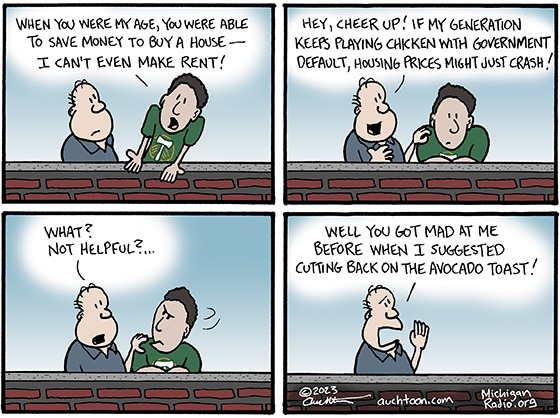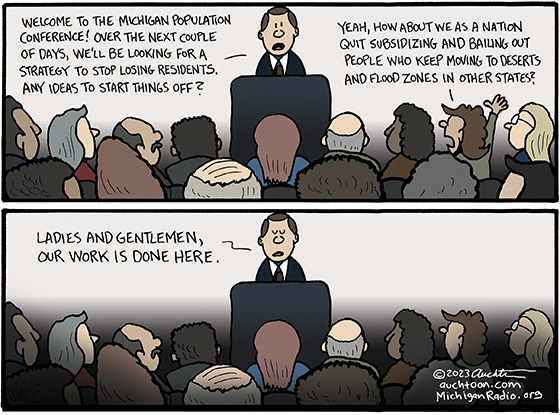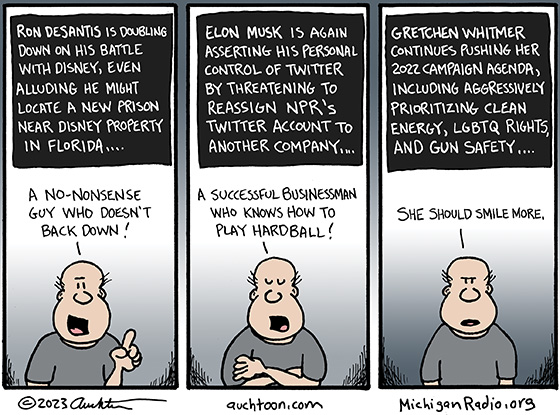Which Comes First?

By their very nature, editorial cartoons do not age well. They are almost always a snapshot of an exact time with a particular set of circumstances.
So it was certainly unusual when something I drew decades ago bubbled up in my head and made me think, “I would draw the same thing today.” In fact, I don’t think that has ever happened — until this week.
In 2003, the Supreme Court of the United States ruled on Grutter v. Bollinger, a case involving student admissions in higher education and the legality of affirmative action. The court held that “a student admissions process that favors ‘underrepresented minority groups’ did not violate the Fourteenth Amendment’s Equal Protection Clause so long as it took into account other factors evaluated on an individual basis for every applicant.” So basically, race could be considered but specific racial quotas were unconstitutional.
As with the recent Supreme Court ruling, which went a step further in eliminating race as even a consideration, there was intense dissent about the ruling (and opinions about race in general). For example:
In her majority opinion, [Justice Sandra Day] O’Connor wrote that “race-conscious admissions policies must be limited in time,” adding that the “Court expects that 25 years from now, the use of racial preferences will no longer be necessary to further the interest approved today.” Justices Ruth Bader Ginsburg and Stephen Breyer concurred in the judgment, but did not subscribe to the belief that the affirmative measures in question would be unnecessary in 25 years. In a dissent joined by three other justices, Chief Justice William Rehnquist argued that the university’s admissions system was, in fact, a thinly veiled and unconstitutional quota system.
And so 20 years later, the question remains the same: Which comes first — racial equality or the end of racism?










